Fondazione Dalmine invita all’incontro online Scrivere l’archivio, con Giancarlo De Cataldo. L’incontro, organizzato da Archivissima, in preparazione a La Notte degli archivi 2026, è rivolto agli archivi e ai docenti che partecipano al contest letterario La scuola racconta un archivio. Capita infatti, che gli archivi raccontino storie; molto più spesso, però, si limitano a suggerirle. Tasselli mancanti, omissioni volontarie, indizi difficili da trovare, […]
Preserving and enriching the industrial archive
/HERITAGE
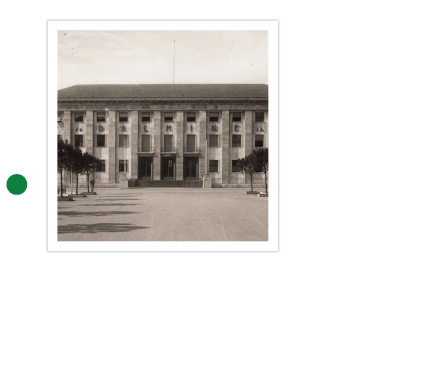
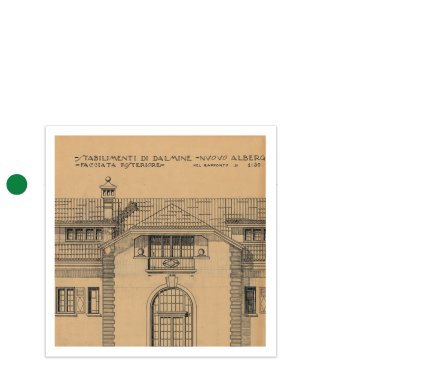
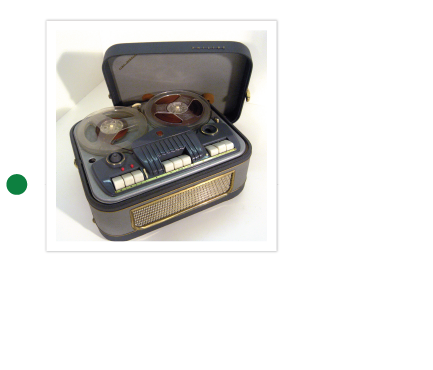
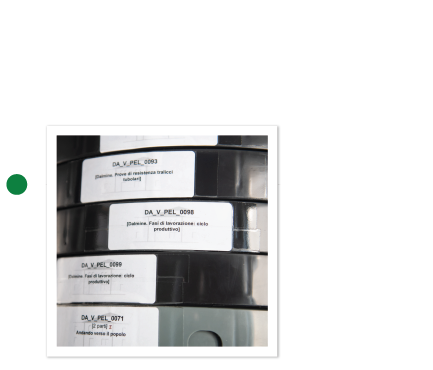
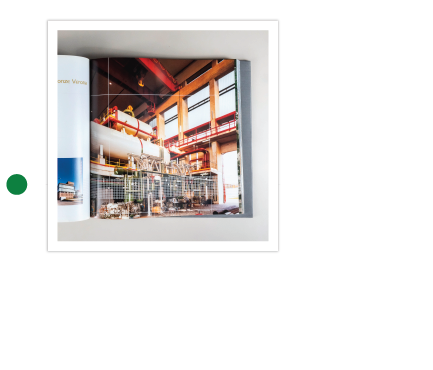
Fondazione Dalmine preserves, manages, and enhances over 2 km of historical documentation produced by Dalmine—now part of the multinational group Tenaris—along with records from employees, consultants, and affiliated companies and subsidiaries. It is a highly diverse collection that includes records from governing bodies, technical design and production documents, real estate deeds, patents, company newsletters, audio tapes, video films, and iconographic materials—such as fair sketches, technical drawings, architectural plans for civil and industrial buildings, as well as educational and advertising posters. The collection also contains 100,000 photographs in various formats and 10,000 volumes, encompassing both a current library focused on industry and work, and a historical company library.
These are sources that bear witness to the history of:
- a company – Dalmine – in over 100 years of business;
- The city of Dalmine, developed around the factory, and its residents;
- company employees, collaborations with professionals and other companies;
- a multi-national group.
The industry
The archives of Fondazione Dalmine document the process of industrialisation and the industry’s evolution toward its current global structure. Since its founding in 1906 as an Italian subsidiary of a German company, the Dalmine production site has witnessed significant historical shifts, including the impact of World War I, a transition to Italian ownership, the growth of the 1920s, and, after the Great Depression of 1929, its integration into state-run industry. The rise of fascism, its industrial policies, wartime bombing, and post-war reconstruction, followed by the economic boom, international expansion, and the transformational changes of the 1970s in industry and labour. This period includes the crises and restructuring of public industry, culminating in privatisation in 1996 and integration into a global group.
The industrial city
The history of Tenaris in Dalmine also reflects the evolution of the relationship between industry and the surrounding community. A model that gave rise to a quintessential company town, featuring infrastructure, residential neighbourhoods, schools, and public and recreational spaces, all part of a corporate welfare system established in the 1920s. An industrial city in the truest sense, where Giovanni Greppi transformed a vision and model of relationship into architecture and urban planning, creating a distinctive language and style that define the 20th century. A vision of the city and industrial landscape that continues to shape the contemporary world, one we can interpret and understand today through the archives. |
The People
The cultural legacy shaped by the industry in Dalmine over a century is also the story of tens of thousands of people who, from 1906 to the present, have worked for the company or lived in the industrial city. Social changes, the transmission of factory labour across generations, migration patterns, and the evolving nature of work and leisure. Changes that mirror the broader shifts that shaped contemporary society throughout the 20th century.
The Archives
The archive preserved by Fondazione Dalmine is a mosaic of diverse sources and documents, all connected by the thread of Dalmine’s history—a renowned Italian company that later merged into the multinational group Tenaris. Fondazione Dalmine is the unique institution dedicated to the preservation, management, and enhancement of this documentary heritage. It stands as a testament to the history of Dalmine and its affiliated companies, the industrial plant in Dalmine and its various locations, the people who have worked for the company, and the development of the industrial city of Dalmine, with its distinctive features and architecture. The core of the archive consists of the company’s collection, which includes documents produced since 1906 by the Società Tubi Mannesmann, later known as Stabilimenti di Dalmine, then Dalmine S.p.A., and today TenarisDalmine, along with records from subsidiaries, affiliates, and investees. The corporate documentation covers a wide range of topics, including production activities, processes, products, markets, and operations at both current and former Dalmine sites. It also reflects the history of the people, neighbourhoods, and social services created by the company for its employees. Dalmine is now part of a major multinational group, and its archive preserves this pivotal chapter of history through the Techint collection. This includes documents related to Agostino Rocca, who managed the Italian public steel industry from the 1920s to 1945, serving as CEO of the historic Dalmine. It also covers the history of the Techint Group, founded by Rocca in 1945, which grew across Italy, Latin America, and globally. Recent donations have added the papers of two prominent architects to the archive: Giovanni Greppi, a leading figure of Milanese architecture in the 20th century, who was commissioned by the company to design the city of Dalmine between the 1920s and 1950s; and Costantino Corsini, of Studio Corsini and Wiskemann, who designed the external layout of the Dalmine plants in the 1970s and collaborated with the Techint Group globally from the 1950s to the 1980s. Additional collections of diverse documents further enrich the heritage of Fondazione Dalmine. These private archives, donated to the Foundation over time, serve as a testament to the work of individuals within the company, reflecting the deep connection between these people and the history of both the company and the city.
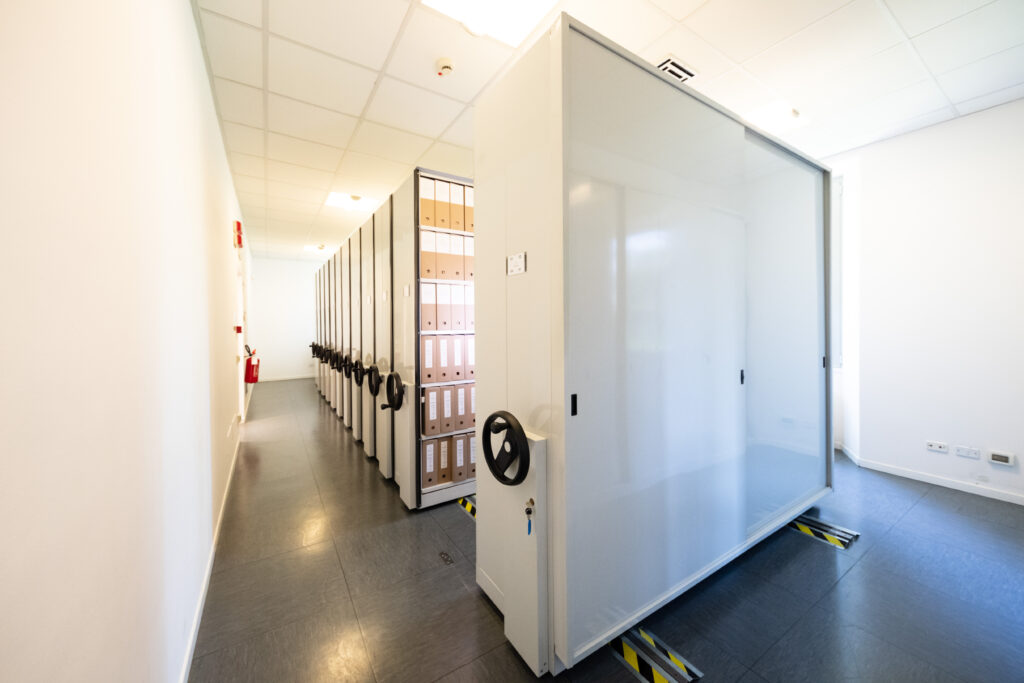
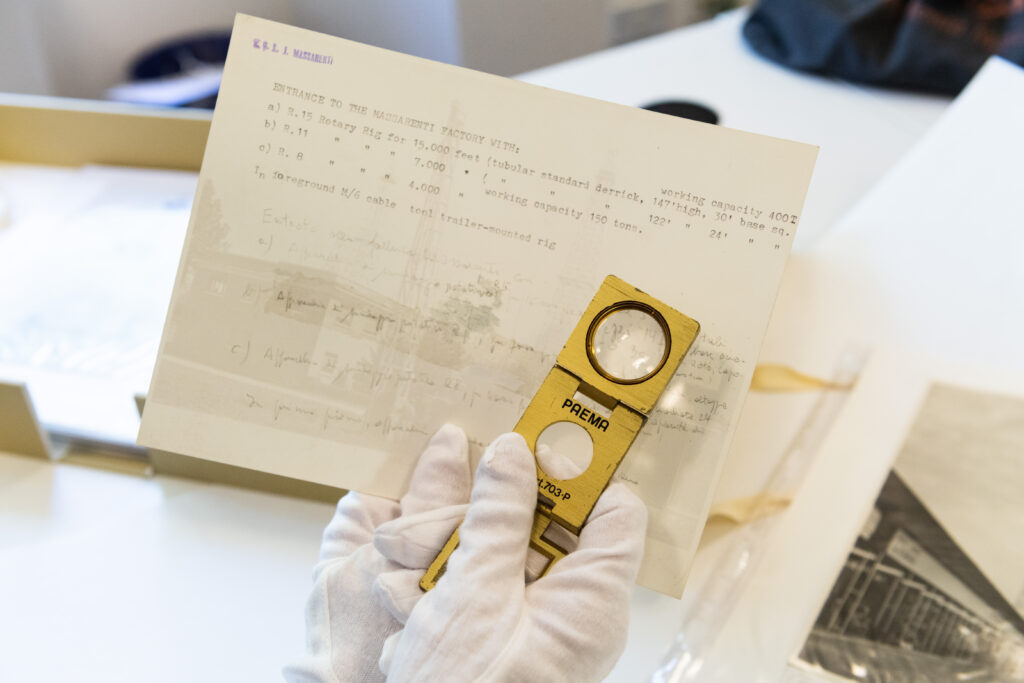
Object Gallery
Catalogue Gallery
Drawing Gallery
House Organs Gallery
Request the information you need or contact us for assistance with your search
Are you a thesis student, researcher or enthusiast?
Heritage news

Natale 1945
Il Natale 1945 è particolarmente rigido: nevica spesso e la maggior parte delle case resta al freddo poiché mancano carbone e legna… Le carte d’archivio – lette dalla compagnia teatrale La Flotte – restituiscono al pubblico le atmosfere di dicembre, 80 anni dopo. Frammenti di vita che escono fuori dalla fabbrica raccontano di soldati che tornano a casa, famiglie che si ritrovano, case da […]

Comunicare la sicurezza sul lavoro: storia e grafica nel ‘900
Fondazione Dalmine invita a un pomeriggio dedicato all’evoluzione della comunicazione sulla sicurezza sul lavoro, dal Novecento a oggi. Esperti, storici e archivisti esplorano immagini, manifesti e campagne aziendali che hanno contribuito – e contribuiscono – a promuovere la cultura della prevenzione. Il programma prevede una parte dedicata al contesto storico, le testimonianze d’archivio e la grafica sulla sicurezza sul […]